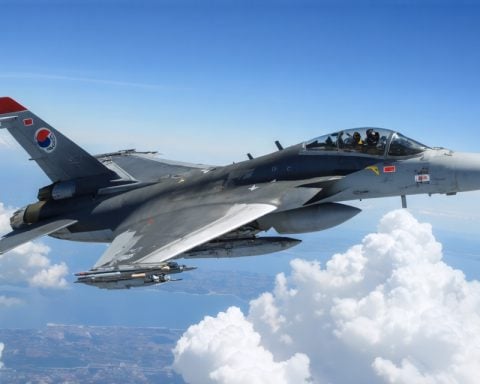In a bold move, Turkey has announced that it will forego purchasing modernisation services from the United States for its fleet of F-16 fighter jets. This decision highlights the growing capabilities of the Turkish defence industry, which is now set to upgrade the jets domestically.
The Details Behind Turkey’s Decision
Turkey has opted out of acquiring 79 upgrade kits for its F-16 fighters initially slated to be a part of a broader transaction with the U.S. Not long ago, Turkey signed a contract with the United States intending to buy 40 new F-16 Block 70 aircraft plus these upgrade kits. However, Turkish Defence Minister Yashar Guler stated that their country’s own aerospace industry, led by Turkish Aerospace Industries (TUSAS), is more than equipped to handle these upgrades independently.
The focus of Turkey’s procurement has now shifted exclusively to the purchase of 40 new fighter jets, an investment that will set the nation back by $7 billion.
U.S.-Turkey Negotiations: A Summary
Earlier this year, the United States greenlit a significant arms deal with Turkey, which included an assortment of aircraft and related weaponry valued at $23 billion. At that time, Turkey’s request encompassed not only new jets but also updates for their current fleet, with comprehensive support packages including radars, engines, and other essential equipment.
Once seeking American approval as part of a diplomatic agreement involving Sweden’s NATO membership, Turkey’s current actions reaffirm its growing self-reliance in defence matters and aerospace technology.
Turkey’s Defence Leap: What It Means for Global Tech and Politics
Turkey’s latest announcement marks a bold step in redefining its military and technological strategy. By choosing to independently upgrade its F-16 fighter jets, Turkey is not just altering its defence pipeline but setting a precedent with implications for both global technology and geopolitical dynamics.
Technological Implications and Advances
This decision underscores the rapid advancement of Turkey’s indigenous defence capabilities. The country is now positioned among a select group of nations that can independently upgrade complex military hardware, like fighter jets. Turkish Aerospace Industries (TUSAS) leads these efforts, leveraging local expertise and innovation, which reflects broader trends in global technology where industrial diversification and technological self-sufficiency are becoming paramount.
One fascinating aspect of this technological leap is Turkey’s ability to develop advanced avionics, radar systems, and defence electronics. These components are crucial for upgrading the F-16s, which require a sophisticated understanding of both design and integration.
Strategic Autonomy: A New Era
Turkey’s move also signals a shift towards strategic autonomy, a concept gaining urgency around the globe as countries reassess alliances and dependencies. The ability to domestically manage defence upgrades reduces reliance on foreign partners, allowing for greater flexibility in policy-making and operational readiness.
However, this autonomy raises pertinent questions: What implications will this have for NATO collaborations, considering technological standards and interoperability? How will Turkey balance its domestic capabilities with international commitments?
Advantages and Disadvantages
Among the advantages, Turkey’s decision allows for greater control over its defence sector, potentially spurring innovation and job creation domestically. It can lead to the development of proprietary technologies that could be exported, boosting Turkey’s economy and technological footprint globally.
On the flip side, the risks include the initial high costs of research and development, potential delays in achieving the desired capabilities, and challenges in maintaining the quality and reliability offered by established international defence contractors.
Controversies and Global Impact
The decision is not without controversy. Critics argue that Turkey’s shift might strain relationships with traditional allies, particularly the United States, which could affect broader diplomatic and military cooperation. Moreover, there are debates about whether internal capabilities can meet the high standards required for such complex upgrades.
Could this move set a precedent for other nations, particularly those with emerging defence industries, to follow suit? Will this catalyse a broader movement towards self-sufficient technology development, impacting global defence markets?
Concluding Thoughts
Turkey’s decision is a remarkable stride in reasserting its presence on the global technological and political map. While there are potential challenges, the move could drive innovation and strategic autonomy not just for Turkey but as a model for nations worldwide.
For insights into global defence advancements and technological innovation, visit Defence News and Reuters.







